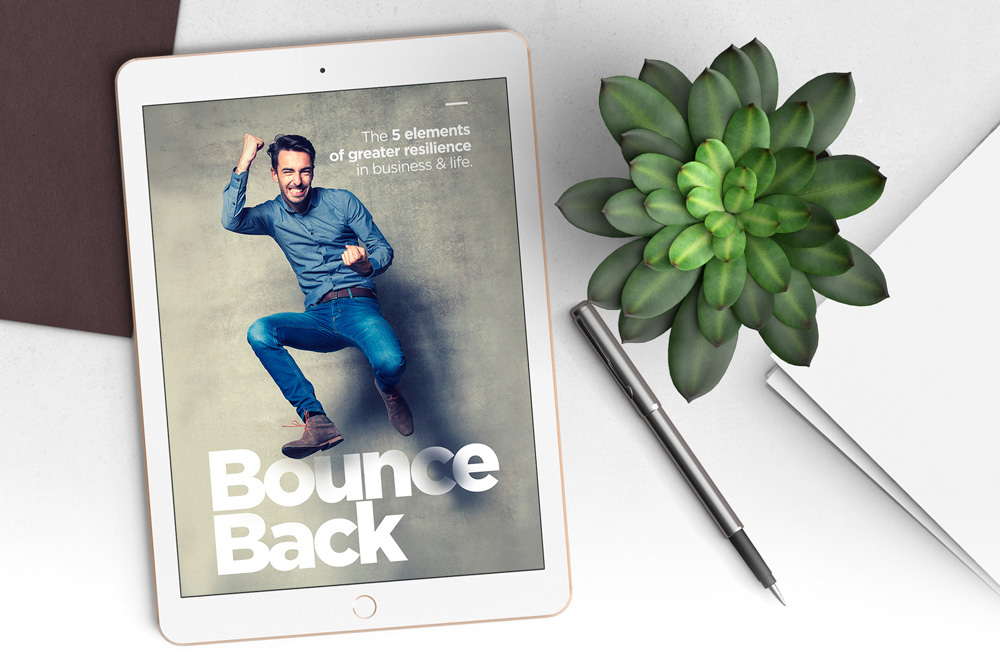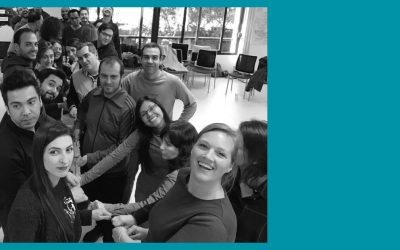Personal growth: weaving through the knots of life
You can find two definite truths for all of us: we live, then we die. In our trajectory of life, we undergo constant progress of learning, developing maturity and consciousness.
When I think about personal growth, I imagine an invisible thread that runs through the fabric of life from the moment we are born until our lights vanish.
Sometimes there are knots, or it tangles up; at times, it’s stretched or simply running in loose curves.
If you were to picture this thread visually, it would be a specific type of embroidery that you make on the back side. So, while you are creating it, everything looks confusing, a bunch of lines, tangled, but once you finish and flip to the right side, it forms a drawing and you can see how beautiful it is.
As you can imagine, this takes times to develop, grow and become visible.
When I was a child, I wanted to plug into the brains of the elderly around me, in order to access their wisdom and see the whole picture! Patience has never been a strong trait of mine. 😉
But I had to wait to see this pattern taking shape, like everyone else. After a decade of having worked in Coaching and other forms of therapy, the field of self-development has not only broadened my own horizon but also given me tools to help individuals through the journey of life.
In this article, I want to address the idea of “becoming,” the ongoing process of personal growth and the many ways we can make sense out of the challenges thrown at us. One part of this process includes changing our mindset. Check the exercises in our worksheet on creating a positive outlook on life, too. But this a small part of self-development, there is more to it.
Personal growth at work
Managers, directors, and leaders of all sort have no choice but to look at themselves, as people around certainly look up to them. Once you step up to one of these roles, progressing with self-development is implicit: it comes with the job!
However, companies invest in coaching also on executive and team levels, hoping for an improvement in terms of communication and conflict management, for the sake of collaborative co-creation.
Research shows coaching improves performance and effectiveness as most of our knowledge economy relies highly on healthy and thriving relationships. After all, we are social animals.
“We suffer for the simple reason that suffering is biologically useful. It is nature’s preferred agent for inspiring change. We have evolved to always live with a certain degree of dissatisfaction and insecurity, because it’s the mildly dissatisfied and insecure creature that’s going to do the most work to innovate and survive”
Mark Manson
In fact, part of my German culture is linked to a constant drive to make things better, improve functionalities and find efficiency. This is a generalization, not a scientific fact, of course. But if you listen to common statements of a culture, they seem to be repeated within our social circle.
For example, in Mexico, it’s the famous “mañana, mañana…” or “ahorita…” (the latter no one really knows how much time that is). In Spain, they tend to complain and then all of a sudden go “no pasa nada,” moving on with life.
In Germany, it’s formulated like this, “This can’t be! You should do it like…” which constantly remarks a certain level of failure in functioning and points out ways to improve.
This German trait in itself is very useful when it comes to innovation and advancing technology. That’s how they got famous for producing high-quality cars, for example.
However, on a personal level, I think most of us have a version of this little devil sitting on our shoulder, whispering: “nah, nah, don’t do it that way, you will fail.” – “Uh, oh, you’re doing it the wrong way again. I see failure ahead.” All in all, it’s a voice that keeps us safe. Yet, by playing it safe, we also tend to play it small.
I certainly identify with it, particularly at the time I was setting up my own business. As excited as I was, I was also damn scared to fail; to lose investment or to take a loan. So, I played it small.
I started whilst still working part-time in the mornings, then from a small place I rented in a non-central suburb. One day an opportunity showed up, mainly because one of my clients, whom I had a certain level of friendship with, pointed out an ad for a new place to rent. “Just call!” he said, and I was so scared that I wouldn’t be able to afford it. Mentally I got caught up in a bit of fear, but luckily, I’m quite impulsive.
In the end, I stayed at that place for more than six years and successfully handed it over to someone when my professional route took a strategic turn. Sometimes it’s great to be pushed out of my comfort and fear zone!
The important clue here is the insight!
How do you play it yourself at work, small or big?
Stepping out of your comfort zone and managing your mindset
Vishen Lakhiani’s, in his book The Code of the Extraordinary Mind, points to the concept of “conscious engineering.” In fact, while reading this article you may have already connected it to Covey’s idea of the “Circle of Influence” and how we manage our comfort zone. Check our worksheet to learn more on the “Circle of Influence.”
However, Lakhiani takes it one step further into how you manage your mindset. He defines two phases of the process of conscious engineering:
- Phase I: Reducing fear of failure
- Phase II: Reframing
Phase I of conscious engineering: Reducing fear of failure
In this phase, you want to become aware of the path you have taken in life so far and evaluate your current objectives.
Are you allowing yourself to expand your comfort zone? To grow and learn for the sake of personal development?
Most of our frustration is related to things that we don’t have any control over. We moan, complain and cry about stuff that just simply won’t change (or a person that won’t change). Unable to take responsibility for our actions, thoughts, and attitudes we bathe in the warm mud of sorrow. Ever happened to you?
One of the books that had the most impact on me was Victor E. Frankl’s Man’s Search for Meaning. If you haven’t read it, I highly recommend it. As a survivor of Auschwitz and having lost all his family and most colleagues, he decided to stay in Europe and write about his learnings:
“Everything can be taken from a man but one thing: the last of the human freedoms—to choose one’s attitude in any given set of circumstances, to choose one’s own way.”
Victor E. Frankl
I don’t know if you can even imagine what it must have felt like. I struggle to do so because my generation ticked all the boxes of Maslow’s Hierarchy of Needs (check our book Bounce Back to learn more about this pyramid of common human needs).
We had it all! Yet, research has shown that our western society has never been this depressed, let alone produced that much medication for anxiety!
Stumbling, running, at times scrawling through life we all encounter a series of experiences that make us the way we are; that form our beliefs and attitudes. In fact, most people just get on with it and sometimes don’t address traumas.
Life can be complicated. Yet at the same time it’s simple. Human’s most sarcastic paradox.
If you are in a position where you have to deal with people it’s vital to understand people; to truly empathise. In order to do that, you will have to start with yourself. The way I look at it, it involves going through 3 steps of growth:
- Self-development of the individual (values, vision, fears, traumas, objectives, etc)
- The relationship you form with others (your team, your family, your society) and how this impacts you and vice versa
- The overall system (may that be your organization, society, culture, etc)
According to Lakhiani, you start by creating and focusing on self-fueled goals. These goals do not depend on anyone but yourself.
This may sound easier than it really is.
One example would be to “feel loved” by your partner. It looks like a nice, achievable goal. However, this is something out of your control. You can only appreciate the relationship and feel what you feel but in reality you have hardly any influence on someone else’s feelings.
The goal, then, could be “to be surrounded by love,” which opens up a whole set of channels (pets, friends, community, partner, children, etc) that would propel that objective.
What is your primary objective?
Take a minute to double check if it is fueled by your attitude and actions or depending on someone else’s!!
Phase II of conscious engineering: Reframing
Now, in order to play it a bit bigger and reach greater results that eventually maximize your own personal growth, Lakhiani suggests to step into Phase II by asking the following 3 crucial questions:
- If time and money were no object, and I didn’t have to ask for anyone’s permission, what EXPERIENCES would I want to have?
- How will I GROW, in order to have these experiences?
- As a result of growing how will I be able to GIVE back to the world?
These questions help you envision the person that you will want to become based on your personal experiences rather than on mere cognitive goals. Obviously, Lakhiani’s book is far too big to cover in this article, so I suggest you take a peek or watch the summaries available on YouTube.
Appreciation & belonging for personal growth
I would want to expand the insights of Lakhiani’s The Code of the Extraordinary Mind, and connect them back to two other concepts that are highlighted by most authors related to positive psychology: Appreciation & Belonging.
As I covered in the ABC of Motivation and the accompanying worksheet, the sense of belonging and creating value not just for yourself but in a personal relationship, extended family or community, will drive your actions towards personal growth.
The act of appreciation combats the brain’s tendency to look for risks and constantly evaluate the past. So, I suggest, to start a gratitude journal. This way you can start rewiring your brain to prime for positive stimuli instead of negative thoughts. Here a few suggestions of questions to answer in your journal:
Today, what are you grateful for?
Even in the smallest way, what made you feel proud of yourself?
How have you created a positive impact on someone else, today?
Where are you on your journey to personal growth? Are you unknotting or weaving a beautiful picture? Get in touch, I’d love to talk about your progress and expectations.
Always keen to know how you are getting on! Contact us or leave us a comment below.
Maike

MAIKE STOLTE
Executive Coach. Consultant. Trainer. Facilitator.
Categories
Contact us

Burnout. COVID. New Normal: How to get yourself back into balance & recover!
By now, most of us share a similar feeling: we feel drained. For months now, we have been bravely facing the Covid-19 pandemic. I think it’s fair to say that it has taken its toll on us. No matter your context, you may have been dealing with the stress of the...
Relational leadership: Influence is trusting and being trusted
We are our relationships. When we foster positive relationships, we create positive environments, develop positive projects and bring positive change to the world. This power of relationships is the base of relational leadership, focused on the leader’s ability to...
Insights From Natural Leaders: With Yasmine Khater
We can always find inspiring natural leaders close to us! In this series of interviews, I’m talking to people who have touched my soul: small business owners, neighbors, friends & colleagues. Those who inspire me to spread the wisdom & insights of our common...







0 Comments